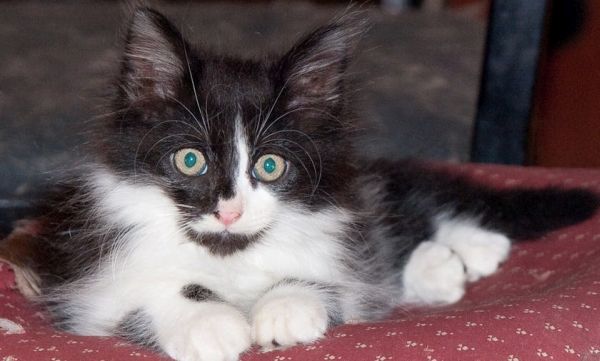The advice below originates from many sources, mainly International Cat Care who are world leaders in feline care and welfare.
Their advice is sought and used by organisations worldwide. They are dedicated to promoting the health and welfare of cats through improved feline knowledge, to ensure better care for cats.
We also have more information about the feline leukemia virus.
How is FIV spread?
Biting is considered to be the most important method of transmission of FIV. The saliva of an infected cat contains large amounts of virus and a single bite can result in transmission of infection.
Infection can also occur by close social contact within a group of cats where there is no overt aggression via the sharing of food bowls and mutual grooming.
A small number of kittens born to FIV-infected queens may also become infected in the womb or by drinking infected milk.
This is difficult to confirm until several months after birth because of the presence of maternally derived antibodies (see section entitled ‘How is FIV diagnosed?’).
Sexual transmission is not thought to be a significant route of infection. It is not known if blood sucking parasites such as fleas can spread infection so it is wise to maintain a regular flea control programme.
What about positive cats?
An FIV-positive cat which is very unwell with signs indicative of severe immunodeficiency should be euthanased.
If an FIV-positive cat shows minor clinical signs, it should receive appropriate treatment, and may recover clinically.
Any adult cat that tests positive for FIV and appears otherwise healthy may have a good life expectancy and should be considered for rehoming.
However, in view of the risks to other cats, this must be to a home where there are no other cats and where the new owners can guarantee that the cat will not go outside.
It may be that such requirements cannot be fulfilled. In these circumstances the cat should be euthanased.
More information is available on the I Cat Care website.
From the Cat Group, which is a collective group formed by Battersea Dogs and Cats Home, The Blue Cross, British Small Animal Veterinary Association (BSAVA), Cats Protection, European Society of Feline Medicine (ESFM), Feline Advisory Bureau (FAB), Governing Council of the Cat Fancy (GCCF), People’s Dispensary for Sick Animals (PDSA), The Royal Society for the Prevention of Cruelty to Animals (RSPCA), Wood Green Animal Shelters, as well as many others.
If you found this useful…
- Click through to see our cats ready for adoption
- Stay up to date with your free Chats du Quercy newsletter
- Make a donation to help continue our work





